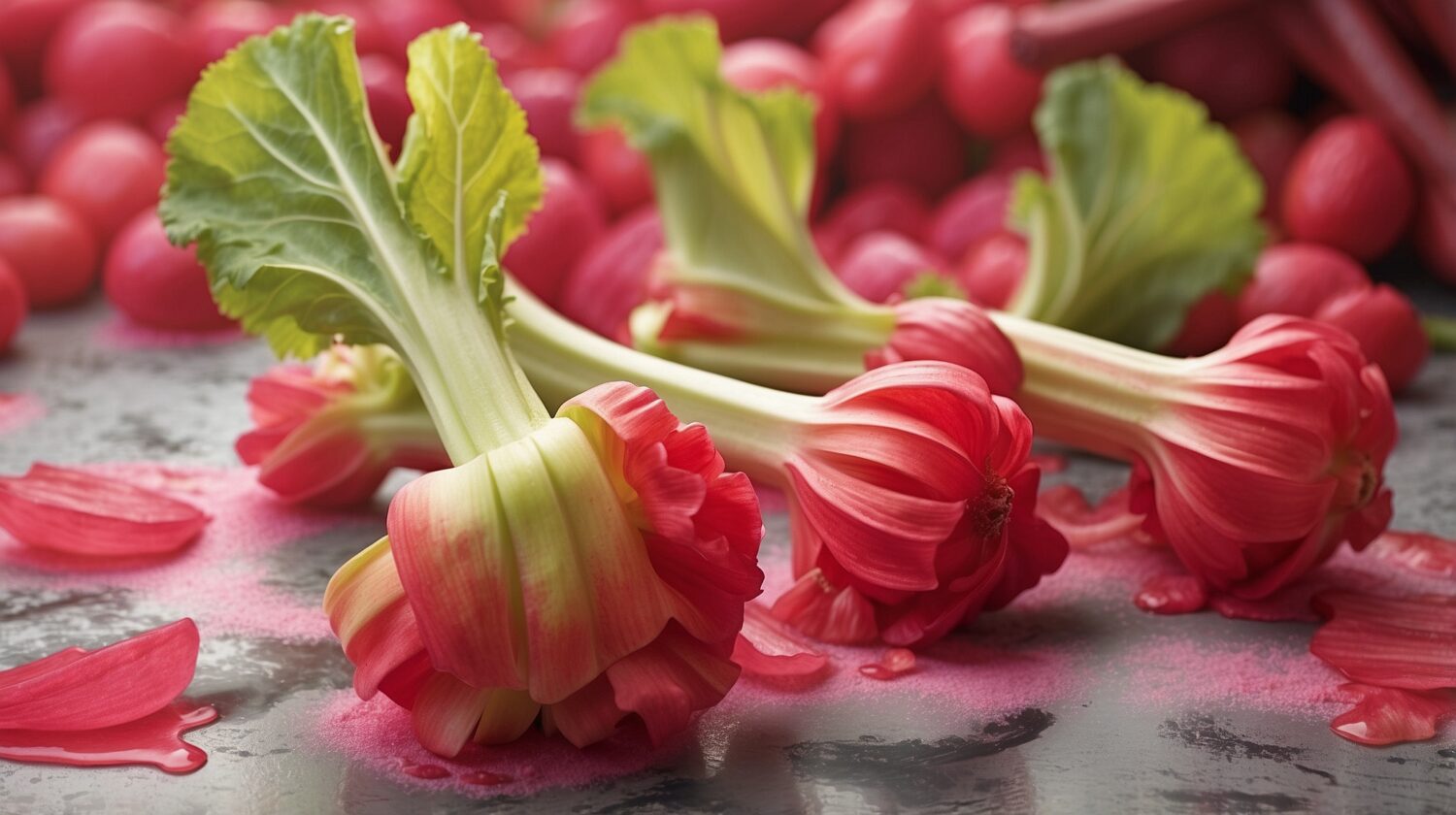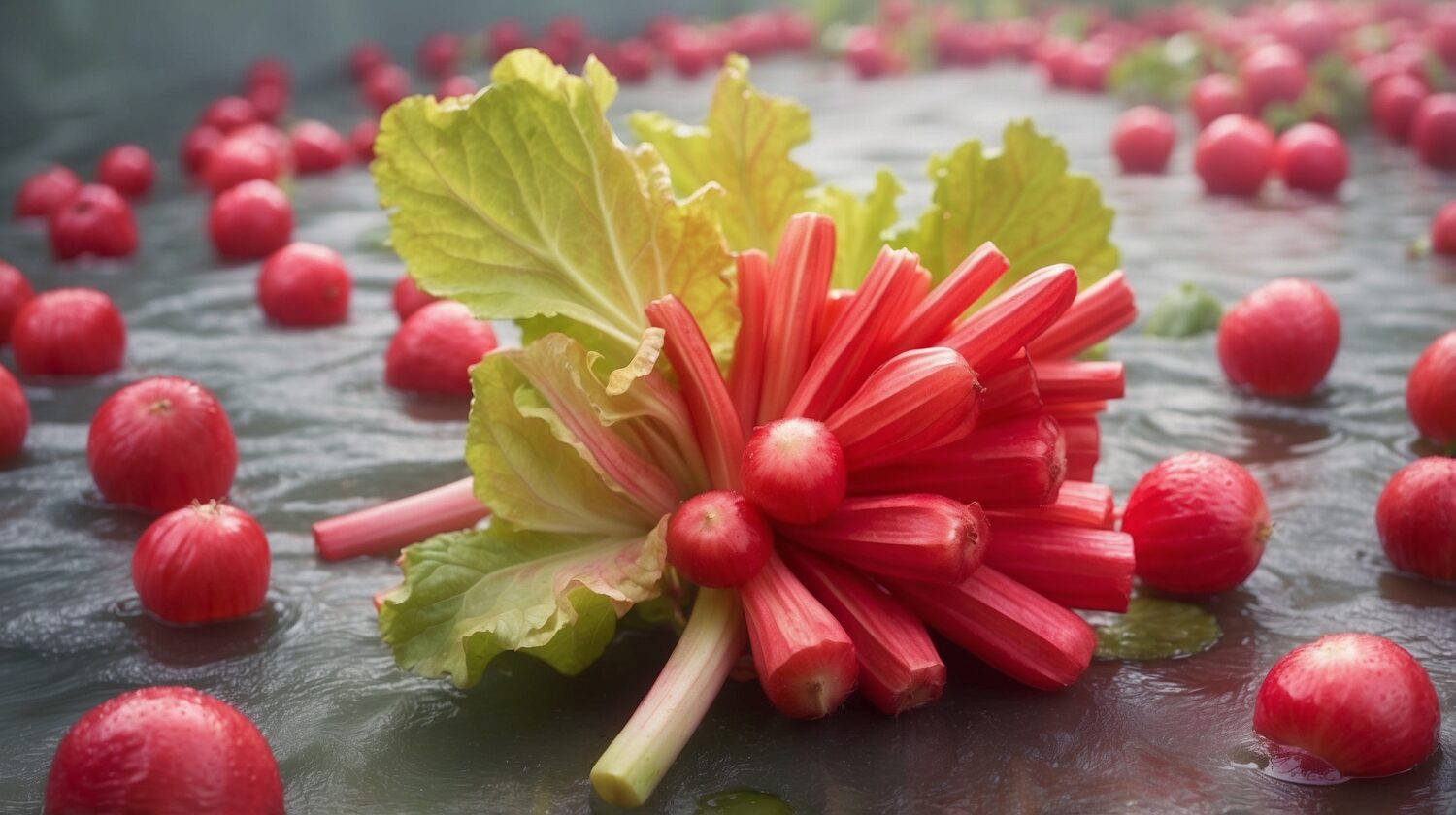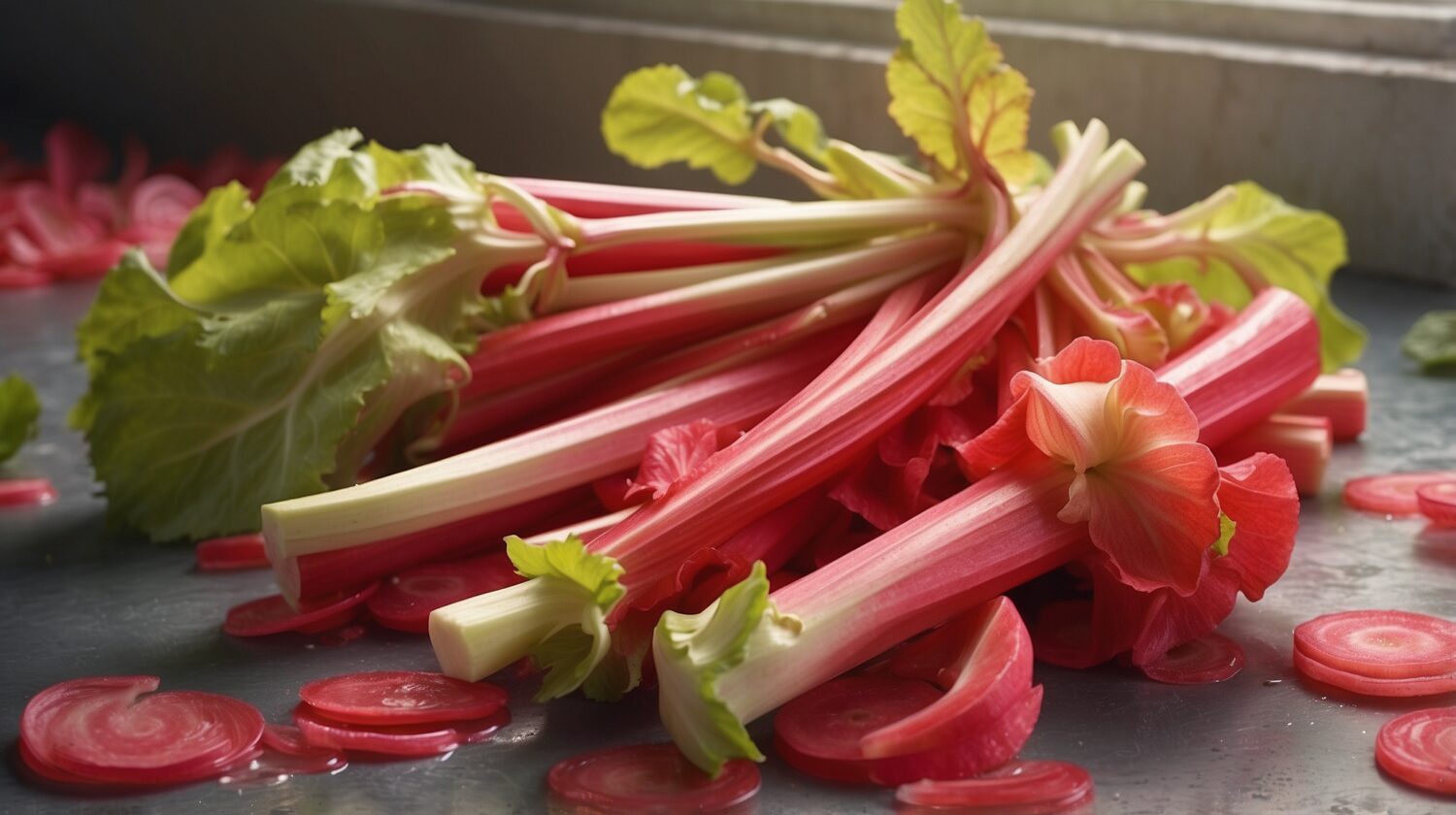There’s a veggie that’s not talked about enough — rhubarb. Sure, it might remind you of old-fashioned pies or grandma’s garden, but this tart plant packs a punch. The health benefits of rhubarb are truly impressive. Curious about how it can boost your well-being? Let’s dive right into the world of rhubarb benefits.
The Nutrient Profile: Why Rhubarb Stands Out
First off, rhubarb is brimming with good stuff. Packed with fiber, vitamins, and minerals, it’s a nutritional gem. Here’s a quick breakdown of what you’ll get with each serving:
– Vitamin C: Keeps your immune system strong.
– Vitamin K: Crucial for blood clotting and bone health.
– Calcium: Essential for bone strength.
– Fiber: Aids digestion and keeps you full.
These nutrients work together, making the health benefits of rhubarb undeniable. Even more, it’s low in calories. One cup only has about 26 calories (USDA). Cool, right?
My Experience with Adding Rhubarb to My Diet
I remember the first time I tasted rhubarb. It was in my grandma’s rhubarb pie. I loved the tangy-sweet flavor, but I had no idea it was so good for me. A few months ago, I started adding rhubarb to my smoothies and salads. The difference it made in my energy levels was crazy.

I’ve even noticed my digestion’s a lot better. Maybe it’s because of the fiber? I mean, less bloating is always a win, right? If you’re tired of feeling sluggish, give rhubarb a go.
Boost Your Digestion with Rhubarb
Speaking of digestion, rhubarb is a fiber powerhouse. Fiber is one of those things you never think about until you know its importance. Trust me, it’s a game-changer. Rhubarb contains about 2 grams of fiber per cup. That might not sound like much, but it adds up.
There are two types of fiber: soluble and insoluble. Rhubarb mostly has the soluble kind, which helps slow digestion and keeps your blood sugar steady. This helps prevent those annoying sugar crashes. Want to avoid that post-lunch slump? Add some rhubarb to your salad.
How Rhubarb Benefits Gut Health
Fiber isn’t just good for digestion. It’s also great for your gut health. Soluble fiber can act as a prebiotic. This means it feeds the good bacteria in your gut, keeping everything in balance. If you’ve had tummy troubles, the health benefits of rhubarb might help sort things out.
Rhubarb and Bone Health: Stronger Bones, Anyone?
Remember how we mentioned vitamin K and calcium? These minerals are vital for bone health. Without enough vitamin K, your body can’t use calcium properly. And without calcium, your bones get weak and brittle.

The good news is rhubarb’s got both. It’s like a one-two punch for stronger bones. A study in the _European Journal of Nutrition_ found that diets high in vitamin K are linked to better bone density and reduced fracture risk. Want to keep your bones happy? Eating rhubarb could help.
Isn’t Dairy Enough for Calcium?
You might wonder why you’d need to get calcium from rhubarb if you already eat dairy. The thing is, not everyone can or wants to eat dairy. Plus, changing up your sources of calcium means you’re more likely to actually get enough. So, mix it up. Don’t just stick to milk and cheese.
Rhubarb’s Role in Weight Loss
Trying to shed a few pounds? Rhubarb can help. Its fiber content is one big reason for this. High-fiber foods-fill you up but don’t fill you out. You feel fuller for longer without chowing down on extra calories.
Plus, rhubarb is naturally low in calories. According to the _Journal of Medicinal Food_, compounds in rhubarb may even help with fat loss. If you’re on a weight-loss journey, these rhubarb benefits could give you the edge you need.
How to Incorporate Rhubarb Into Your Weight Loss Plan

Wondering how to add this tart treat to your diet? Easy. You can use rhubarb in:
– Smoothies: Blend it with berries for a tangy twist.
– Salads: Dice it up for a juicy crunch.
– Snacks: Roast it with a touch of honey.
Heart-Healthy Rhubarb: Keeping Your Ticker in Check
Cardiovascular health is a big deal, and here’s another win for rhubarb. Its combination of fiber, antioxidants, and minerals helps keep your heart in top shape. Let’s break it down:
– Fiber: Lowers bad cholesterol levels.
– Antioxidants: Fight off free radicals and reduce inflammation.
– Potassium: Helps control blood pressure.
A study from _Harvard Health_ backs this up. Foods rich in potassium and fiber can lower the risk of heart disease. This makes the health benefits of rhubarb too good to ignore.
My Dad’s Heart Health Journey
My dad has been managing high blood pressure for years. Last summer, I convinced him to add more rhubarb to his diet. At his next check-up, his blood pressure was lower. Could be a coincidence, but I like to think rhubarb helped!
The Antioxidant Punch
Antioxidants are like your body’s natural defense system. They fight off free radicals — those nasty molecules that can cause cell damage. Lucky for us, rhubarb is loaded with them.
Quercetin, a powerful antioxidant, is found in rhubarb. It’s the same stuff that makes apples and onions so good for you. Want to boost your body’s defenses? Rhubarb might be the antioxidant hero you need.
The Impact of Antioxidants on Your Skin
When we think of antioxidants, we often think about fighting off diseases. But they’re also great for your skin. They can help prevent aging and protect against UV damage. I started using rhubarb in my face masks, and my skin’s never looked better. It’s like nature’s very own beauty secret.
Smooth Sailing for Your Liver
The liver is your detox HQ, and rhubarb’s got your back here too. Anthraquinones in rhubarb have a cleansing effect on your liver. This can help the liver function more efficiently.
There’s even research showing rhubarb can protect liver cells from damage. A 2016 study found that it might reduce liver fibrosis, which is essentially scarring. Want a liver cleanse that’s natural? Consider the health benefits of rhubarb.
Why Liver Health Matters
When your liver’s healthy, you’ll notice more energy, better digestion, and even clearer skin. If you’ve been hitting the junk food or alcohol too hard, adding rhubarb can help hit the reset button.
Sharper Vision Thanks to Rhubarb
Vision problems are common as we age, but rhubarb can help. The plant is rich in vitamin A, which is key for eye health. Rhubarb also has lutein and zeaxanthin—two antioxidants that specifically support vision.
According to the _American Optometric Association_, these antioxidants help protect your eyes from harmful blue light. Spending tons of time on screens? Make rhubarb your new best friend.
My Late-Night Computer Habit
I’m a bit of a night owl. I spend loads of time staring at my laptop. My eyes always felt strained. Once I started eating more rhubarb, I noticed a difference. My eyes don’t feel as tired anymore.
Rhubarb Can Help Fight Inflammation
Chronic inflammation is linked to many diseases, including arthritis and diabetes. Rhubarb has anti-inflammatory properties, thanks to its rich antioxidant content. A study in the _Journal of Medicinal Chemistry_ found that rhubarb extracts reduce inflammation.
If you’ve got achy joints or other signs of inflammation, rhubarb could be helpful. It’s like nature’s built-in pain relief.
Tackling My Post-Workout Soreness
As someone who loves to work out, muscle soreness is standard for me. I started adding rhubarb to my post-workout meals. I swear, the soreness isn’t as bad. You don’t need to take my word for it, but why not try it yourself?
Supporting Heart Health
Another major appeal of rhubarb is its positive effects on cardiovascular health. Let’s get into the details.
*Blood Pressure Regulation**
Rhubarb’s potassium content is another benefit, playing a significant role in regulating blood pressure. The potassium relaxes blood vessel walls and reduces the strain on the cardiovascular system. Lowered blood pressure means a reduced risk of heart attacks and strokes.
*Lipid Profile Improvement**
A Korean study indicated that supplementation with rhubarb extract improved lipid profiles, including lowering LDL cholesterol and increasing HDL cholesterol. Better lipid profiles contribute to heart health and prevent atherosclerosis, the hardening of arteries due to fat deposits.
Mental Well-being and Rhubarb
Rhubarb might even contribute to mental well-being. Some studies suggest that the antioxidants in rhubarb can help combat oxidative stress in the brain, which is linked to mental health issues such as anxiety and depression.
*Calm Your Mind**
Adding rhubarb to your diet